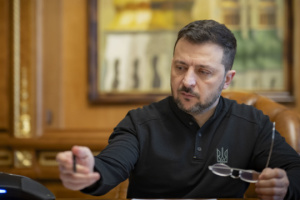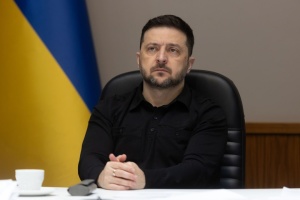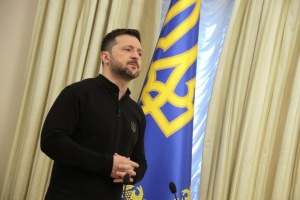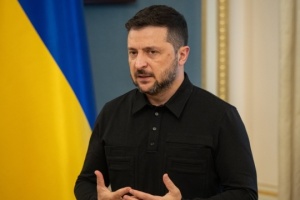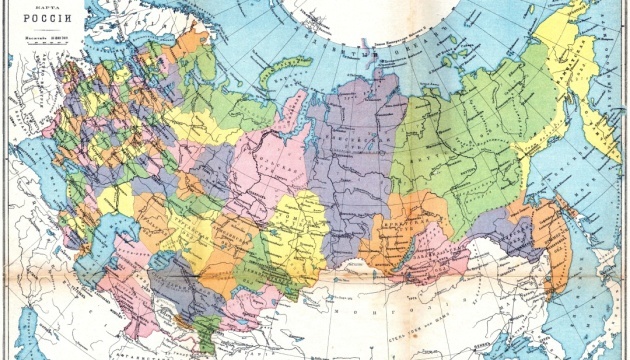
Russia is half-empire that has not disintegrated. But what should be considered «Russia"?
In Ukraine, in the post-2014 world, and especially after February 24, 2022, there is a lot of talk about Russia's imperial ambitions, the Russian Empire and its heritage. Ultimately, about Russia as an empire. In the rally, journalistic version, and dimension, everything is clear.
However, if you get acquainted with the humanitarian views on this topic, everything is more complicated. Because you need to understand what the "empire" is and what "Russia" is. But after such an analysis, it becomes clearer why it is more difficult to apply the usual imperial framework to today's Russia. And it becomes clearer how the Kremlin parasitizes on this in its foreign policy and propaganda.
EMPIRES IN THE WORLD ARE VERY DIFFERENT, UP TO AND INCLUDING FICTITIOUS ONES
The word "empire" has many meanings. First of all, it is simply a large, strong state ruled by a monarch - an emperor. Such empires include diverse but adjacent lands and peoples. However, there is also the concept of a colonial empire, which, by the way, is not necessarily monarchical. The most obvious example: France, after the fall of the Second Empire of Napoleon III, was a republic with a democratically elected president. But at the same time, it was a large colonial empire for a long time.
So, we already have two options: continental and maritime empires. The Austro-Hungarian and Russian empires were continental. The British and French empires were maritime. The Japanese Empire was a colonial one during its expansion. But after the defeat, it remained a compact island country, an empire only nominally, with the emperor as a symbol of the state.
People, rulers in general, love political games and symbols. In general, any state can be declared an empire. This was the case with the Mexican Empire (1821-1823, 1863-1867). Or a more recent example is the tragicomic Central African Empire (1976-1979).
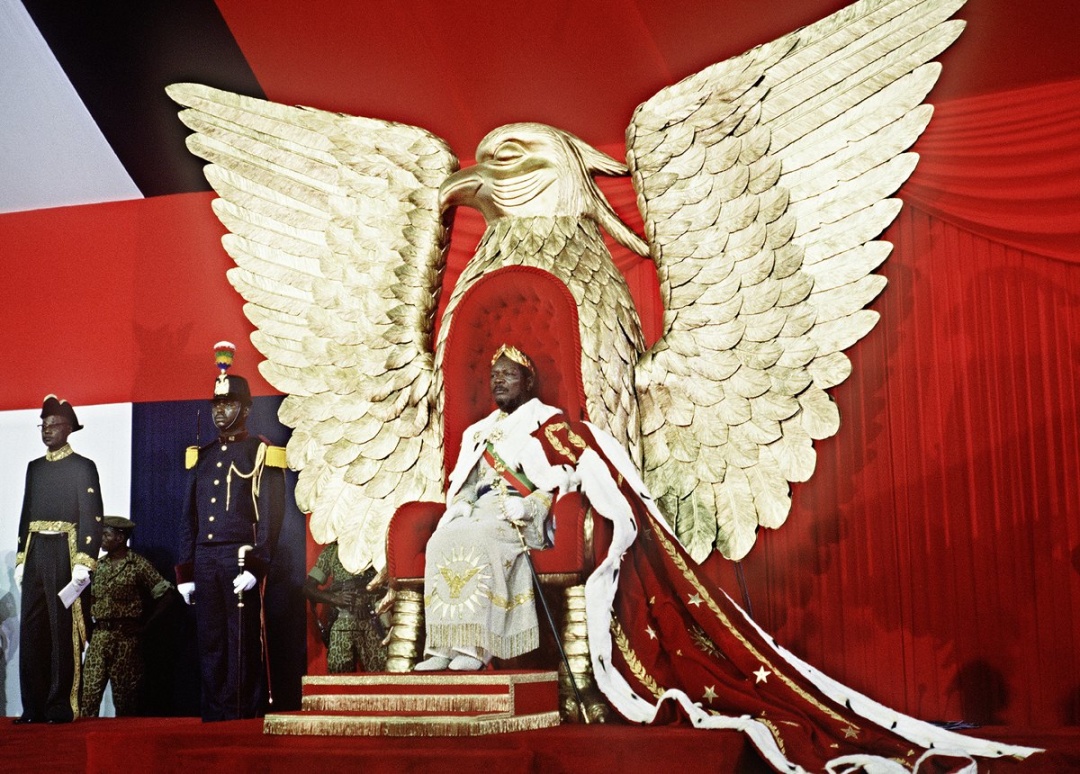
In connection with the existence of empires, the term "imperialism" is also often used as a practice of conquest policy, and colonialism in the sense of the presence and maintenance of colonies by the center of the empire, the metropolis. In addition, just as the term "chauvinism" began to be used not only in a political sense, but also in a social and even sexual sense ("male chauvinism"), so the concept of "imperialism" has expanded. Sometimes it is said (no longer in the context of conquests and border movements) that imperialism is cultural, economic, and political.
Another semantic pair should also be noted. Often, an opposition between "empire" and "nation-state" is made. Moreover, in the nineteenth century, the nation-state, the formation of nations, and nationalism were considered purely progressive phenomena, as they contributed to overcoming the remnants of feudalism, monarchical rule, and imperial domination; and to the establishment of the democratic process. But in the twentieth century, after the outbursts of right-wing extremism and the excesses of the fascist-Nazi states, the word "nationalism" became a common and often abusive term. At the same time, certain, very selective principles of the former empires, such as a common law for different countries and peoples, and their coexistence, have become a positive example. Accordingly, the attitude to this opposition between "empire" and "nation-state" has become more complicated.
DID 4 EMPIRES REALLY COLLAPSE AFTER THE WORLD WAR I ?
And now let's turn to Russia and its comparison with other continental empires.
It is often said that four empires collapsed as a result of the First World War: Austro-Hungarian, German, Ottoman, and Russian. But how correct is this statement? Let's take a closer look at each example.

It is safe to say that the patchwork, as it was called, of the Austro-Hungarian Empire collapsed. The two previous metropolises became simply Austria and Hungary. The Ottoman Empire finally collapsed, losing its last colonies. The metropolis became simply the Republic of Turkey. Germany lost its status as a colonial empire, as the victors Britain and France took away all its overseas colonies. But if we talk about the German Empire as a continental empire, then it also ceased to exist. The territories with mixed ethnicity went to its neighbors-France, Denmark, and the reconstituted Poland and Lithuania.
And now we come to the Russian Empire. Yes, the emperor was overthrown and even shot along with his entire family. So, in this sense, it was not an empire. And in other senses? And what about the territory? Only Finland, Poland, and the three Baltic states were able to defend their independence. But the rest remained under the control of the center, Moscow. This can hardly be considered a full-fledged disintegration, but rather a reformatting, or the first stage of the collapse of the Russian Empire.
At the same time, while Austria, Hungary, Turkey, and Germany took a difficult, uncertain step, interrupted by the Second World War, but nevertheless a step to become more or less national states, the situation with Russia is different.
It is so different that we need to take a closer look at how accurate and reasonable it is to call what has been called Russia since 1917.
AGAIN ABOUT STALIN'S "AUTONOMY" AND LENIN'S "EQUALITY"
In the early fall of 1917, against the backdrop of falling popularity, the Provisional Government proclaimed the state in which the monarchy had been abolished six months earlier a Russian Republic. The Bolsheviks, who seized power in October-November, retained this name, arbitrarily adding the definitions "Federal" or "Soviet" to it. It was only in 1918 that the name that had a longer life was fixed - the RSFSR, the Russian Soviet Federative Socialist Republic.
At the same time, the Bolshevik rulers of the RSFSR had a "creative" or rather pragmatic approach to the treaties signed with the former colonies of the Empire that had declared their independence (including Ukraine). They believed that if they managed to conquer these countries anew, "revolutionarily," it would not be difficult to write new treaties.
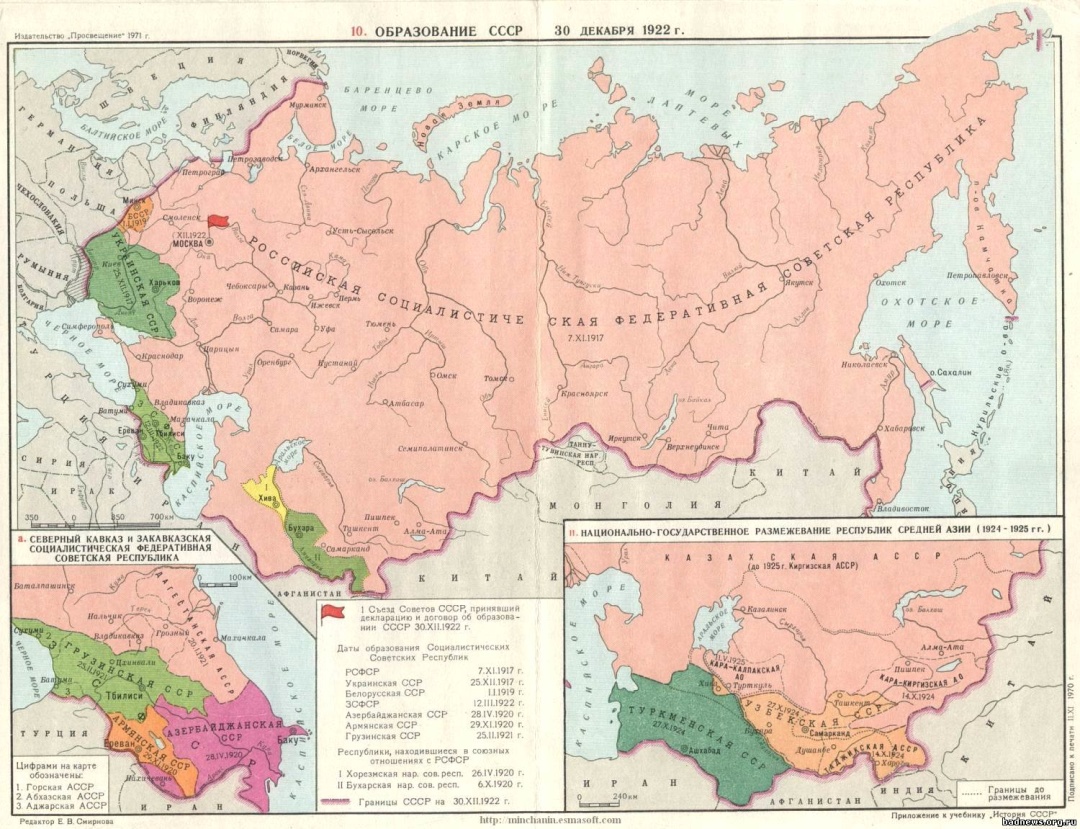
The second half of 1922 was key, when a great state was being molded out of the already conquered and controlled territories. Stalin proposed the project of "autonomization," that is, the inclusion of Ukraine, Belarus, and the three South Caucasian republics as autonomous states in the RSFSR. But Lenin was against it, believing that it would be politically and propagandistically more convenient to create a superstate out of these "equal" republics, a prototype of a world communist union.
Accordingly, the name of this state did not contain the word "Russia" at all - the Union of Soviet Socialist Republics. In other words, it is supposedly the complete antithesis of what used to be on this site before-not "Russian" and not "empire." A really clever political trick.
STALIN HIMSELF CONTINUED LENIN'S GAME OF THE UNION STATE
But on the other hand, this very decision, years later, in 1991, made it easier for the "union republics" to secede from the USSR. And it is for this reason that the current dictator Putin hates the former dictator Lenin and respects the dictator Stalin more.
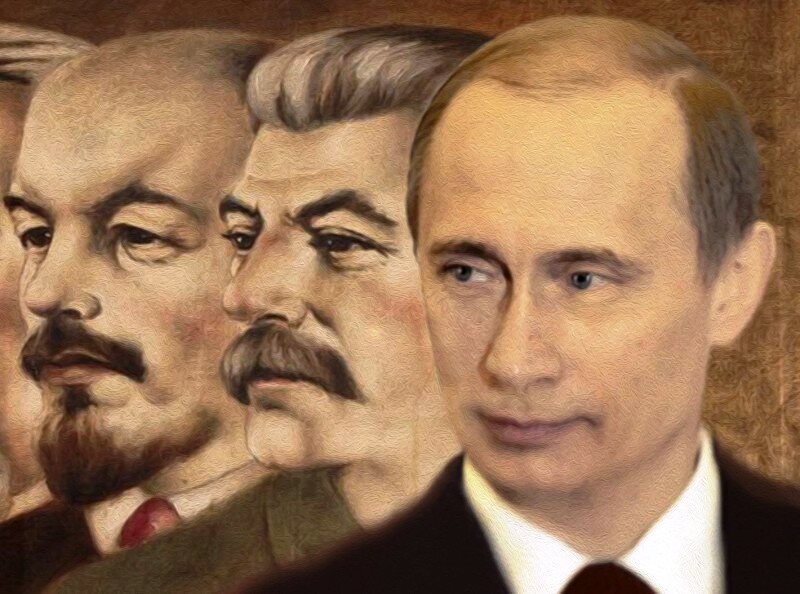
By the way, it was in vain, because in 1930-1950, General Secretary Stalin had such power that he could do whatever he wanted with the state in his hands, reformatting it as he wished, including abolishing the formal, as it was then considered, "right to secede." But no, Stalin was also comfortable with this kind of domestic and foreign policy game of "union" of free republics, as proposed by Lenin. Moreover, if Putin were more consistent, he would have criticized Stalin no less harshly than Lenin. And here's why...
As a result of the so-called "national-territorial delimitation" in the Bolshevik-controlled territories of Central Asia, "independent states" were created in 1924: The Uzbek Soviet Socialist Republic (which included the Tajik ASSR) and the Turkmen Soviet Socialist Republic. In 1925, they "voluntarily joined" the USSR. (By the way, does this remind you of anything? Well, of course - a similar scheme is used by Putin in the "legalization" of the occupation and annexation of Ukrainian territories).
At the same time, the territories of Kazakhstan and Kyrgyzstan at that time were just completely "Stalinist" autonomies within the RSFSR. But here's what happened next, and without Lenin at all. Kazakhstan and Kyrgyzstan were granted the status of "full-fledged" union republics in 1936 (when Stalin was already an absolute one-man ruler). That is, if we use the same Putin's logic, then without such (already Stalin's solely) decisions, these republics-countries would not have been able to gain independence in 1991? Yes. But Putin is still silent about this. Probably because the seizure of these territories is not a priority for him at the moment.
And the latter is also an afterthought. The Bukhara Emirate and the Khiva Khanate (Khorezm) were not previously part of the Russian Empire at all. Since 1873, they were only its protectorate. However, as a result of local "revolutions", fervently supported by the Red Army, they were captured and completely absorbed. This is to say that while Finland, Poland, and the Baltic states were initially able to "leave" as a result of Bolshevik rule, Bukhara and Khorezm, on the other hand, were soon completely captured. (The Uzbek SSR and Turkmen SSR were created in 1924 from a significant part of their territories).
So - once again. Can this be called/considered the collapse of an empire?
THE PARADOXES OF DIFFERENT PERCEPTIONS OF THE USSR, SOVIET RUSSIA, AND THE RFSR
So, to repeat, the name "USSR", unlike "RSFSR", did not contain the word "Russia". This, however, did not prevent this four-letter state (i.e., the USSR, not the RSFSR) with its center in Moscow and the Russian language as the main ("language of interethnic communication") of Soviet Russia. First of all, abroad, but often within the USSR as well.

The result was a peculiar phenomenon of public consciousness. When a significant and even overwhelming part of the population of the Ukrainian, Belarusian, Moldavian, Georgian, Azerbaijani, Kazakh, and other SSRs took the name and realities of their republic seriously. They considered it "Soviet," but Ukraine, Moldova, Georgia, etc. But not Russia! Which is logical, since the RSFSR was something completely different.
But at the same time, in the RSFSR itself, as well as across the borders between the republics, all Moscow-centered, Russia-centered citizens of the Union had the feeling that they lived in Russia, even if it was Soviet. This perception was postulated in the USSR anthem ("The unbreakable union of free republics / Great Russia has united forever"), as well as in the anthems of the union republics, which sang of love and gratitude to the Russian people. This was then consolidated in the cultural and artistic life of the entire Union.
This perception, which has been cultivated for decades, has led to the prevalence of imperial complexes in the current Russian Federation (as well as among its agents of influence in post-Soviet countries). This is especially evident when comparing Russia and Belarus. Belarus has many (post)Soviet complexes, which are also supported by the Lukashenko regime. But not the imperial ones that are widespread in Russia. That is why the two dictators are afraid to send the Belarusian army to the Ukrainian front.
This contradiction in the public consciousness of the "RSFSR" - "other republics of the USSR" has led to the fact that for the Kremlin and most Russians, the independence of post-Soviet countries is, in the words of Bulgakov's character, "a stupid and vulgar operetta." So, there is nothing wrong or wrong with the return of the "historical lands of Russia."
But for the citizens of these countries, the sovereignty is quite real, with a strong foundation in their identity, cultural heritage, and originality.
RUSSIA IS STILL AN EMPIRE THAT MAY BE IN DANGER OF COLLAPSE
Yes, we can say that 1991 marked the second stage of the collapse of the Russian Empire. But can what is left be considered an imperial metropolis in its own right, or can we compare Russia to the core remnants of empires that have truly collapsed-Germany, Austria, Hungary, Turkey? It is enough to look at the map, at the territorial-administrative division of Erephia, to answer quite firmly - no! Russia, which, through Putin's efforts, is seeking to expand, to return to its former imperial borders, remains an empire within its current borders.
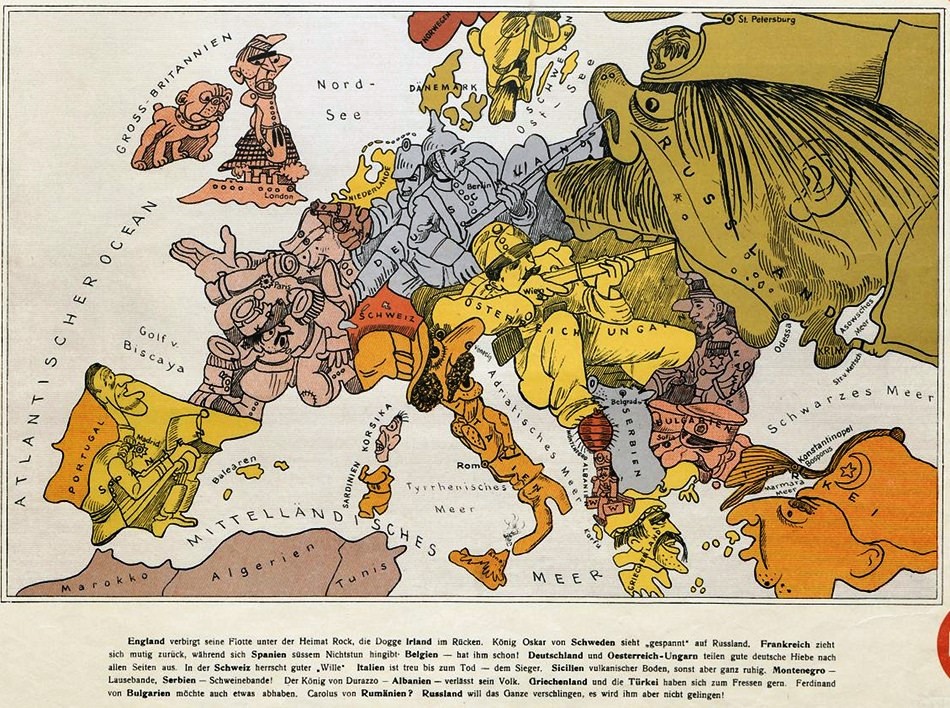
And it's not just Putin. Suffice it to recall how the RSFSR was transformed into the Russian Federation in December 1991. The country was initially proposed to be called simply Russia. It was only after a demarche by representatives of the national republics who left the meeting room that another name was adopted, the Russian Federation (Russia).
Back then, in 1991-1993, Yeltsin made his promises to "take as much sovereignty as you can" not just for the sake of it, but to calm public opinion of numerous national liberation movements within the country. In fact, it was a repetition of the Bolshevik/Leninist promises of the unlimited right of nations to self-determination. The main thing is to calm the masses. And then, when the center becomes stronger, it will be possible to conquer everyone.
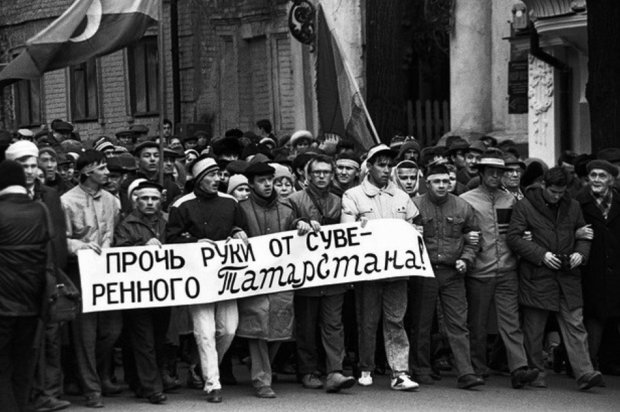
In the early 1990s, Chechnya and Tatarstan were the leaders in the quest for independence and sovereignty. By launching a full-scale war against Ichkeria and intimidating Kazan (and others), Moscow managed to stabilize the situation and suppress national movements. To then return to its previous consistently imperial policy. To the processes of assimilation, digestion of previously conquered peoples, which intensified in the 2010s.
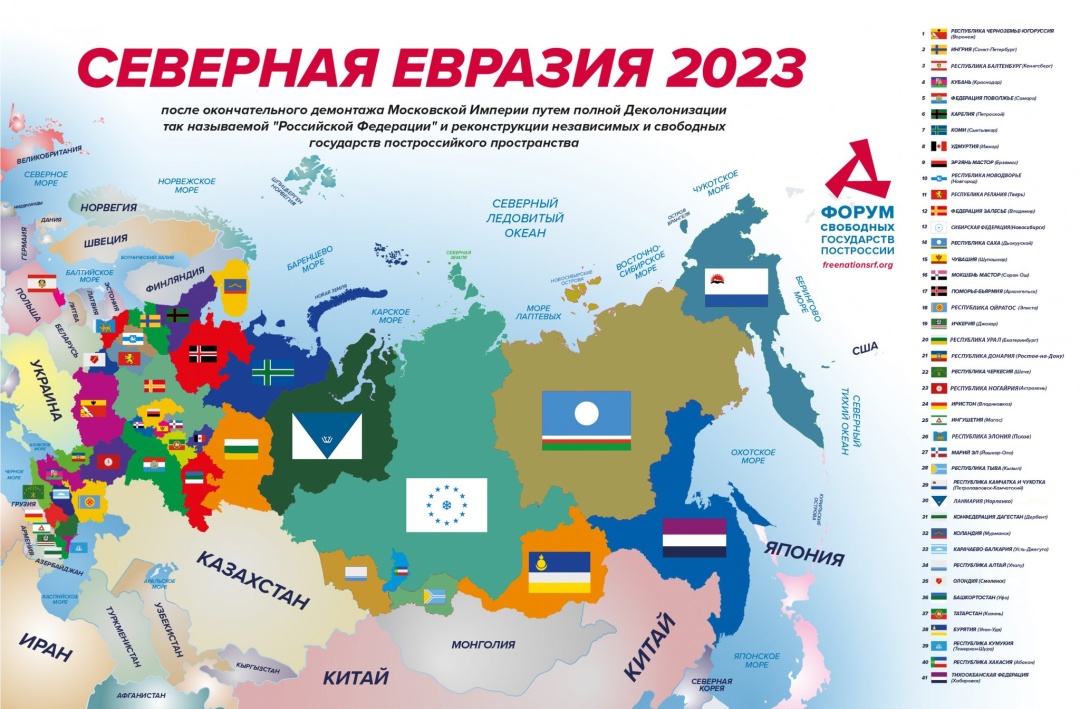
At the same time, however, the Kremlin launched an adventurous full-scale war with Ukraine. Putin dreamed of returning Russian Federation-Russia to the borders of the empire, but he risks undermining the situation inside the country and leading to another third stage of the collapse of the Russian Empire. Voices about the possibility and even the necessity of this are becoming louder and louder. It is no coincidence that the Forum of Free Peoples of Russia, which was organized in 2022, after several meetings changed the word "Russia" in its name to "Postrussia". If we are talking about the de-imperialization and decolonization of this space, the new term does sound more logical.
Next time, we will continue our discussion of the peculiarity of imperial Russia, how correct it is to say that its principle of existence and development is "internal colonization," and why it is so difficult to adapt the popular concepts of "postcolonialism" and "orientalism" to the Russian Empire.
Oleg Kudrin, Riga

